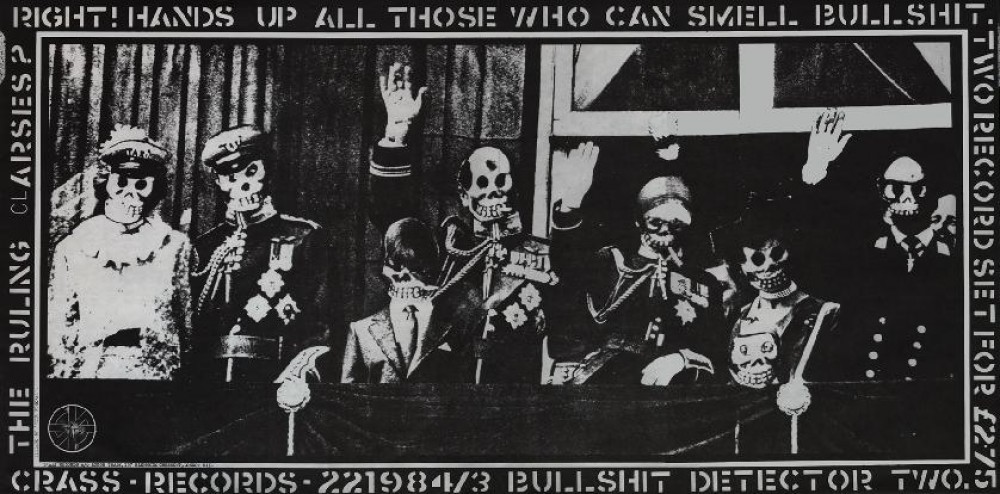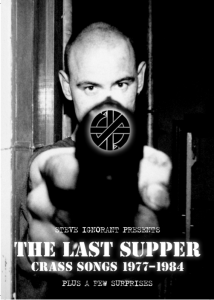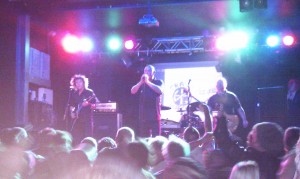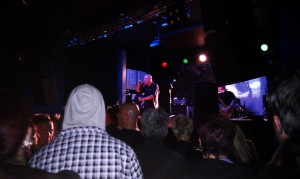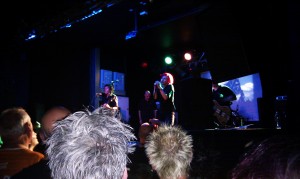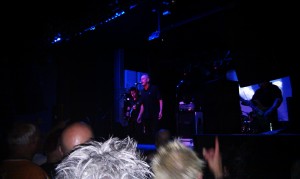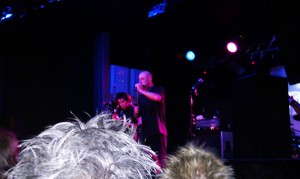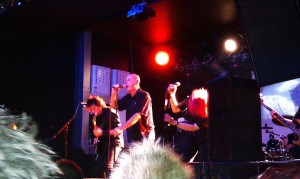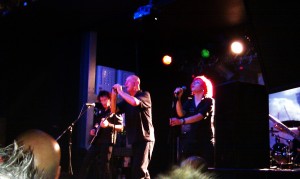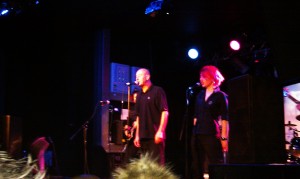The Eurosonic Nooderslag Music Festival takes place in the northeastern town of Groningen in The Netherlands in the second week of January. The festival is Europe’s main conference and showcase festival for European music which was set up to create an international platform for the European music industry and to promote the European repertoire. The festival is a combination of a music industry based conference during the daytime, consisting of various talks, demonstrations and chaired panels from music industry and related experts/businesses, and musical events showcasing as many as 250 musical acts from a variety of musical genres and European countries, in numerous venues around Groningen. During my time there i saw some really good music in some really varied venues from purpose built concert halls, outdoor stages to even a small independent art gallery (of which I will return to later). My overall impression of the festival was that it was very industry focused (which sounds obvious considering the nature of the event), by that I mean it was a place for music based businesses and performers to meet and network. There were some really interesting panels discussing recent developments in the industry from such people as Will Page (Spotify) and Jeff Price (AAIM). There was a daily workshop on an education exchange programme called Musication which unfortunately we couldn’t attend as it was invite only. This workshop looked at building a network between 30 professionals in charge of educative activities in modern music where they would develop a teaching toolkit and exchange programme. This seemed focussed on the musicological and composition performance aspect of music and was probably the only panel that had a direct interface with education. Many of the other panels and presentations were quite tech-based or very music industry/business focussed, none the less there was some interesting insights into the developments within the industry regarding, streaming, ticketing, touring, festivals and streaming live, health and safety. There were also many panels that were Dutch speaking only which due to my poor knowledge of Dutch were out of my remit. What I did find out was that a lot of students from many colleges and the University in Groningen play an active part in the festival by getting placements working with professional stage managers/directors/techies on the various stages/venues, working as part of the production office team, marketing and promotions team etc etc thereby giving them real industry experience.
What I found fascinating and impressive was that a city the size of Groningen, with a population of around 190,000; could successfully accommodate the festival. It seemed apparent that there was a lot of local support from the municipal council and other public bodies in ensuring that the city retained this festival and made it integral to its economic and strategic planning. The local population were seemingly very accommodating and no doubt could appreciate what it does/might do for the local economy. Here was a really good example of commercial enterprises and public authorities working symbiotically for mutual benefit. In conversations with Jez Collins we both considered why a city like Birmingham, with a population 10 times that of Groningen has not managed to attract a major international music industry conference/festival like Eurosonic to take place in the city centre, rather than way out of town at the NEC. Organisations like Capsule have successfully put on similar small scale festivals such as Supersonic, which has gained a phenomenal international reputation, but I am left wondering how much Birmingham City Council (BCC) have been behind them, supporting their events to the point where it becomes part of BCC’s economic and strategic planning policy to put Birmingham on the international musical map. Only BCC can answer that but in my 8 years of working in Birmingham I have been to many meetings to discuss such issues and try to create a music policy for Birmingham and haven’t seen it happen yet. Perhaps BCC need to send a representative next year to get a flavour of Eurosonic as these types of events are really useful in supporting and indeed developing cities as sites for music, music heritage, music industries and music education.
One of the most interesting meetings I had was with theIMMHIVE project partners where I caught up with more inside knowledge of the project and current progress as it reaches the climax of its final year. One of the attendees was Jan Peer who is the Course Director for the undergraduate International Pop Culture bachelor degree at Hanze Minerva Art Academy, located in Leeuwarden. Jez has/will be posting up the video Jan’s discussion with the project group up on this blog however is my summary of what interested me about his course. The course has been running for 10 years and is focussed around the idea that popular culture is reflected in many disciplines and many pop culture artefacts /products are a combination of many art/media/cultural forms. With this in mind the course is about students developing a new skill set that combines music with art and culture. It is a 4 year Bachelor of Arts degree programme that combines 2 degrees-a Bachelor of Music and Bachelor of Design. The course has approximately 240 students (60 per year group) so compared to our Media and Communication programme (600 students) it is very small but this course has to be as I will explain later. The academy understands that most students on graduation start as or become freelancers and the academy is developing students to work both inside and outside the mainstream music industries, where music and the creative industries interface.
Interestingly there is no fixed curriculum, at the beginning of the first year students have to create a learning programme of their own based around what they want to create whilst at the academy. What they are presenting is an environment where the learning is negotiated by the students so it is self determined-a bit like post grad style teaching and learning at undergraduate level. This is where the small course numbers becomes important; the students are put into working groups based on the similarity of things they want to produce or skill sets that can be shared as benefit to all in the group-it was stressed that the group dynamic is very important and staff spend a lot of time before the start of the course that the students are well placed in a group as peer collaboration and peer teaching/learning plays a central role in the teaching and learning culture in the academy . All students get a 20 minute lecture twice a day from different lecturers who bring to the course a specific set of skills and knowledge that they share and then the students go off in their groups to work on their projects. This sense of freedom helps in developing the students’ sense of personal responsibility to their own learning. Every 10 weeks there is an interview between group lecturer/mentor and each student in their group to check on student progress and to evaluate and assess the students’ progress, work to date and their learning goals. At this point each student has to produce a critical evaluation of their progress, learning and development and then extra tuition, resources etc are achieved through negotiation.
The development of students as creative entrepreneurs resonates with some of what we
do in the Birmingham School of Media but not as advanced or flexible as the academy’s approach. I think having smaller numbers certainly helps manage such a course and would be difficult to replicate across our Media and Communication course at Birmingham City University where we have 600 students on the programme each taking a specialist pathway. Jan has kindly invited me and Jez to come and spend some time at the academy and contribute some of our knowledge in an academic exchange programme. There was also the suggestion that we should take a few of our students with us to experience this method of teaching and learning as the academy also offers a student exchange programme. Visiting and experiencing the academy’s philosophy and environment will be beneficial as we would be able to see how it works, get to speak to some of the other staff and students and see how we can potentially combine some of their methods and philosophies into our teaching and learning practice. It was very inspiring meeting Jan and we experienced firsthand some of his students work later that day/evening at the Sign Gallery where they were performing and exhibiting at a show called ‘Soep’ (Dutch for Soup) where quite believably we got served free soup whilst we walked around and looked at the art and listened to the bands. It was great seeing the fruits of the student’s hard work during their studies at the academy. The next day they also held a Dayparty where they had live music and this time free beer. What I liked about it was that I got to hang out with the cool kids of Groningen, heard some great music and saw some really interesting art.
Despite Eurosonic being a festival by the industry for the industry it was still a very informative and enjoyable experience and I look forward to returning to Groningen to meet Jan Peer, Ard Boer and the whole bunch of lovely new friends I made whilst out there.
